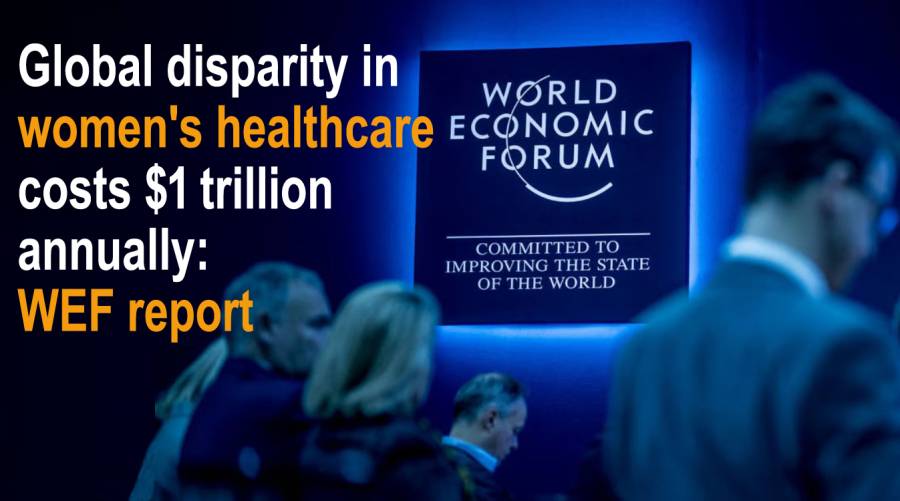Global disparity in women's healthcare costs $1 trillion annually: WEF report

DAVOS, Switzerland: A World Economic Forum (WEF) report revealed on Wednesday that the staggering divide in the treatment of men's and women's health is imposing an annual cost of $1 trillion worldwide.
The report was released during the WEF's 54th annual conference in Davos, Switzerland, and was a collaborative effort with Swiss firm Ferring Pharmaceuticals and the McKinsey Health Institute.
According to the 42-page report, women endure a quarter more of their lives grappling with health issues than men. The imbalance extends across medical research, diagnosis, and treatment, signifying an urgent need for reform.
The WEF estimates that closing this health gap could inject an annual $1 trillion boost into the global economy by 2040, resulting in a 1.7 percent increase in per capita GDP driven by women. The report underscores that every US dollar invested in women's health could yield three dollars in projected economic growth. A substantial portion of this growth would be attributed to enabling sick women to re-enter the workforce.
The gender health gap is responsible for approximately 75 million years of life lost annually due to poor health, equivalent to a week per woman each year, as stated in the report. Addressing disparities related to conditions such as endometriosis and menopause, which have historically been under-studied, could contribute an estimated $130 billion to global GDP by 2040.
The study also highlights concerning trends, revealing that less than half of women with endometriosis have received proper diagnosis. Additionally, women are diagnosed later than men for 700 different diseases, with a significant delay in cancer diagnosis, taking women two and a half years longer.
The report draws attention to gender-specific health issues, citing examples such as asthma inhalers being notably less effective for women than men. WEF healthcare head Shyam Bishen emphasized the urgency of prioritizing investment in women's health.
Bishen stated, "The analysis demonstrates that investing in women’s health must be a priority for every country. Beyond improving women’s quality of life, ensuring women have access to innovations in healthcare is one of the best investments that countries can make for their societies and their economies."
In response to these findings, the WEF announced the launch of the Global Alliance for Women's Health, with a commitment of $55 million pledged for women's health initiatives.
Trending
Popular
Researchers warn of allergy risks posed by insect-based foods
-
WHO’s mRNA bird flu vaccine ...
02:30 PM, 31 Jul, 2024 -
University of Wollongong cancer ...
10:00 AM, 31 Jul, 2024 -
JSMU lauds Dr Waqas for research ...
05:30 PM, 26 Jul, 2024 -
Revolutionary HIV drug can drastically ...
06:30 PM, 25 Jul, 2024




